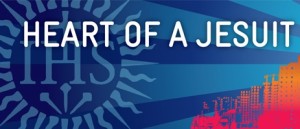
By Sarah Mac Donald - 05 January, 2015
 If the church is a field hospital, as Pope Francis has suggested, then the healing of the wounded won’t be done by technical experts but those who pick up the wounded in their own arms and embrace them, Archbishop Diarmuid Martin said on Sunday.
If the church is a field hospital, as Pope Francis has suggested, then the healing of the wounded won’t be done by technical experts but those who pick up the wounded in their own arms and embrace them, Archbishop Diarmuid Martin said on Sunday.
In his homily for the ordination of three new Jesuit deacons at Milltown Park in Dublin, the Primate of Ireland warned, “We will not heal those whose lives have drifted from Jesus Christ by throwing books of dogma at them. That would only mean shouting at them in a language at them that they still have to learn.”
He told the three deacons, Jae-wook Lee and Hjun-june Lee from South Korea and Shane Daly from Co Kildare that service of the Church today is not simply about activism.
“The service of these deacons and all of us called to ministry is one where we must journey with the men and women of our times, and especially the young people of our time, leading them into a discernment about the fundamental orientation of their lives and especially their Christian lives and thus find Jesus fully within the reality of their lives,” the Archbishop said.
He said the young Jesuit Jorge Bergoglio had a vision of being missionary, “not in the sense of imposing a new and different religion on people who had not yet heard of Jesus Christ. He desired to walk with people leading them into knowing someone to whom they would be attracted and thus to change their lives.”
Archbishop Martin added that the journeying of the missionary disciple must be a journey of respect, encountering cultures which we may not always like, but which we must always attempt to understand; cultures which may well be pluralist, and where we may attract others to our views but not impose them.
Referring to the church in Milltown in which the ordinations were taking place, Archbishop Martin said that when it was built, Ireland was a very different place.
“Faith was imbedded in so many dimensions of personal and public life. That is no longer the case today. Of course there are many roots of faith present in Irish society. Our young people, however, no longer automatically inherit faith.”
However, he added, that that may not be a bad idea. “Faith must be sought. Faith must be intimately linked with the search for identity as a person and the search for purpose as a society and a world in which we live,” he suggested.
He added that the missionary disciple must have a special antenna which identifies where the wounded are in our world and which are the specific wounds of our times.
Speaking after the ceremony, 41-year-old Rev Shane Daly from Kildare explained that he had been a special education teacher before he joined the Jesuits when he was 35.
“Despite finding a lot of contentment and joy in the schoolwork, I still found that something was missing and I began to re-engage in prayer, spiritual direction and that developed to reflecting on the possibility of entering religious life.”
He had previously studied theology and philosophy as a seminarian in Maynooth.
Rev Shane is due to return to Toronto in Canada to finish his studies in theology at Regius College before returning home to serve in Ireland.
According to Fr Tom Layden, Jesuit provincial, Rev Shane will probably be ordained to the priesthood in Ireland by December this year while the two Korean deacons will be ordained in South Korea after they complete their studies in Milltown.
Sadly, tragedy struck for Deacon Hjun-june Lee, whose mother died in Korea on the morning of his ordination and so his fellow deacon Jae-wook Lee (38) said he would have to return home immediately for the funeral.
Nevertheless, Fr Layden said Sunday’s ordination of the three men to the diaconate was “an occasion of great joy” for the Jesuits in Ireland.
“It reminds us of the fact that we are an international order – our two brothers from Korea are here doing Licences in sacred theology in the Milltown Institute. They will be ordained to the priesthood at a later stage and ordained for service back in Korea,” he explained.
According to Fr Layden, there has been a tradition for the past twenty years of Korean Jesuits coming to Ireland for their studies.
“We have got to know them and we find ourselves inspired by their great sense of reverence and friendliness and their courage in adapting so readily and so well to another culture and another language,” he told CatholicIreland.net
He said the ordinations gave the Jesuits “a sense of our future.”
“In the past year we have been celebrating the bicentenary of the restoration of the Society of Jesus and we’ve reflecting on the graces the Lord has given us for international companionship and also the graces in our history here in Ireland.”
“So we have been looking to the past in a spirit of great thankfulness but we are aware that our call is in the present, looking to the future.”
He said it was their hope that the pontificate of Pope Francis “would lead younger men to think about the Jesuit way of life – that this would lead to an increase in Jesuit vocations as this has already been the experience in some parts of the world.”